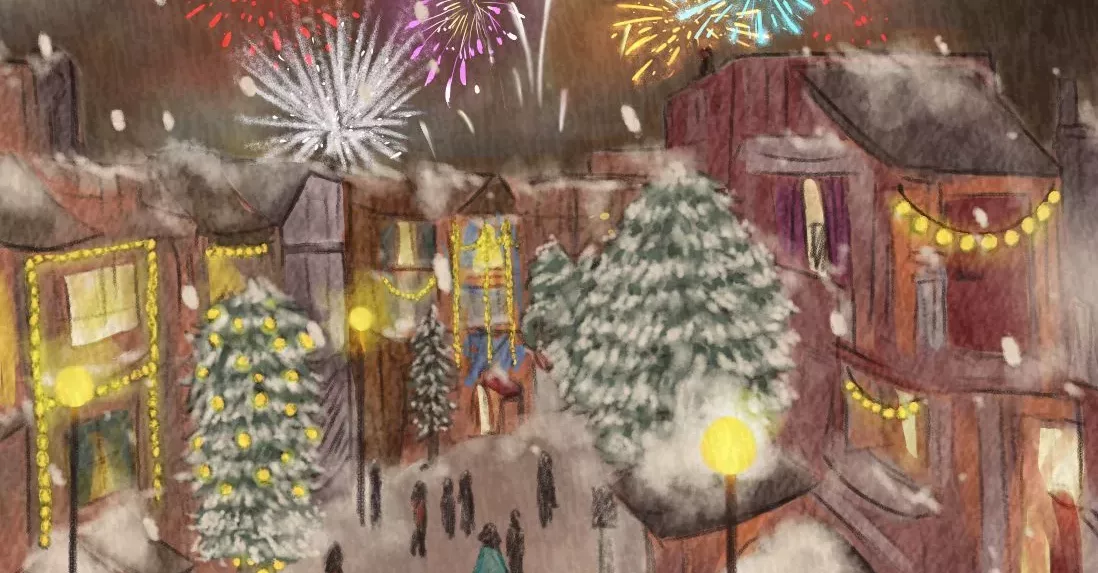Nakba Day: A Remembrance of the Palestinian Exodus by Israel

“I remember when the violence all started,” said Salwa, sitting in her sparse, one-room home in Shatila. “I may have been only six when we left, but Jaffa will always be home… I’m still sad about my school. It was … it was a proper school. There was structure … even the food was good. Our uniforms were so cute. We had options – either blue shorts or blue skirts, and a white shirt and a white scarf. I always chose the skirt.”


Salwa Naser left her family home in Jaffa as a six-year-old nearly 70 years ago. Now she lives in a tiny refugee camp room on the outskirts of Beirut. The Shatila refugee camp was temporarily built for 3000 Palestinians fleeing the war in 1949, but now within just about a square kilometre —which is only about one-sixth of our Dhaka University campus— it houses over 22,000 thousand people from three generations of Palestinian refugees as well as Syrian refugees just like Salwa.
Salwa said, “My parents really did a good job keeping the kids in the dark about the rising violence – same with the school teachers.” she and her classmates didn’t realise the rising communal tensions until the windows of her first-grade classroom shattered one morning after an explosion rocked her quiet, coastal hometown. Her father decided to send their family to stay with her mother’s family in Syria.
At 16, she married a young Palestinian man also from Jaffa, eventually settling down in Hajjar al-Aswad, a neighbourhood on the edge of Syria’s largest Palestinian refugee camp, Yarmouk. Yet, in 2012 during the uprising against Bashar Al-Asad’s dictatorship, Salwa and her son had to leave for Beirut. Shortly after they arrived in Shatila, a neighbour had WhatsApped them a snapshot of a mound of debris —the remains of what had once been their home.
This is the story of Salwa and hundred-thousands of Palestinian nationals. They were dispossessed from their homes and homeland since Zionist forces declared their very own State of Israel over most of historical Palestine and the British officially ended Palestine Mandate over the area.
What Is Nakba?
Most of us generally are not even familiar with it. Every year Palestinians across the globe mark May 15th with this title —which literally translates to ‘The Day of Catastrophe’— to commemorate the mass expulsion of Palestinian nationals from their homes for the purpose of the establishment of the State of Israel.
More than 700,000 Palestinian Arabs —about half of prewar Palestine’s Arab population— fled or were expelled from their homes during the 1948 Palestine war. More than 500 Palestinian villages were massacred during it. Along with the depopulation and destruction of Palestinian lands and geographical erasure of their names and culture, Al-Nakba also refers to the ongoing persecution, displacement, and denationalisation of people to this day. The catastrophe continues to affect more than 12 million Palestinians who remain stateless today.
Before It Happened
Regarding the Israel-Palestine conflict, people often mistakenly jump to the conclusion that the situation is a Muslim versus Jewish conflict. However, such a statement is far from reality. Even though public opinion is often clouded by religious sentiment, however, it is about geopolitical control in its true sense.
Historical Palestine mainly was made up of Palestinian Muslims, Christians, and a small number of Jews who generally lived together peacefully. Due to the Holocaust across Europe, Jewish people no longer felt safe there. Hence, a philosophy of a Jewish homeland in Palestine started to emerge among them, known as Zionism. Obviously, establishing a Jewish there would mean causing the native population of these land to leave, which happened to be Palestinian Arabs.
As the first step toward transforming Palestine into a Jewish homeland, the Zionist organisation began coordinating emigration and purchasing land in Palestine. During WW1, in a formal political letter known as the Balfour Declaration, Britain offered Zionist support for a Jewish National Home in Palestine.
After WW1, Britain occupied Palestine —commonly known as Palestine Mandate— and heavily sponsored Jewish immigration to Palestine, and the numbers increased exponentially in the 30s. The number of Jews emigrating to Palestine began to rise dramatically in the 1930s. The figure increased from 4,000 in 1931 to 9500 the following year. The number increased to 30,000 in 1933 and 42,000 in 1934, further increasing to 62,000 in 1935.


So this led to a Palestinian revolt against British and Zionist occupation in 1936 for liberation. The Palestinian uprising was successfully decimated by Britain, leaving them with no political or military leadership. On the other hand, the British began restricting Jewish migration, which enraged the Jews who had fought alongside the British during the insurrection, prompting them to form their own Zionist militias.
The Balfour Declaration specifically included:
(…) nothing shall be done which may prejudice the civil and religious rights of existing non-Jewish communities in Palestine.
And it was not respected by the Jewish people who had emigrated to Palestinian lands from all over Europe.


Then Came The Catastrophe
Zionist militias carried out bombing strikes against both British and Palestinians. The British declared in 1947 that their mandate over Palestine would be lifted as things began to run out of hand. The Palestine case was ultimately handed over to the UN, which recommended partitioning Palestine into two states, one Arab and one Jewish. As the British prepared to leave, the Jewish population began to take over.
Ethnic cleansing of Palestinian began months before the British formally left Palestine. On May 14th, 1948, the British officially ended the Palestine Mandate leaving their tanks and armoured weapons to the newly created State of Israel. So the Zionist takeover was made easier for them because they were heavily armed with British leftovers and their own militia forces.
It happened many times that the Israeli very holy soldiers took ten of the youngsters in the middle of the village, shot them just in order to kill them in order that all the others will see and run away and if it’s not enough they took others.
—Theodor Katz, Israeli Historian
By April 1949, the Israelis had seized over 500 villages and ten cities in less than two years. Over 750,000 Palestinians have been uprooted, and over 13,000 killed.
What Now?
Seventy years of Israeli occupation and Palestinian resistance is a topic far from the scope of this tiny article. But the unfortunate truth is that the Nakba has not ended.
Today Israel still occupies the whole of historical Palestine Israel has continued expanding and establishing settlements on Palestinian land that are illegal under international law. Palestinians in the occupied West Bank live under military law —which according to a UN report, falls under the definition of apartheid— and the Gaza strip is under a blockade imposed by Israel.
(…)1.7 million Palestinians who are full citizens of Israel, but who, the report found, live under “martial law” and are subjected to oppression because they are not Jewish.
–The Washington Post, March 16th, 2017


The Nakba was announced by Yasser Arafat in 1998, but it has been used informally for protests since 1949. Supporters of Palestinians’ human rights across the world commemorate this day on May 15th.
Parting thoughts
No matter how strongly or softly we feel about Israel, we cannot deny history, as well as the rich and culturally colourful legacy of Palestinians as a nation. We can spend days arguing whether Bangalees should be a separate nation from Indians, Ukrainians from Russians, and Palestinians from Arabs. Yet, I believe it is not hard to admit that the people have a right to choose what they identify as, not what labels are put upon them by their colonisers. In 1948, a mission to obliterate the identity and culture of these people was initiated that is still going on by all sorts of unethical means.
[Disclaimer: The focus of this article is to present the sufferings of Palestinian civilians due to the Nakba. For this very reason, the series of military conflicts as well as the liberation uprisings post-occupation were intentionally excluded.]
Follow The Interlude for more!















Very Informative!